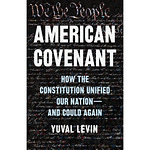Hello friends,
I interviewed Russell Moore on the podcast this week about his new book Losing Our Religion: An Altar Call for Evangelical America, which is out next Tuesday, July 25.
In his book, Moore refers to the "post-2016 era" as an "apocalypse."
Now, you hear that word, and you might think Zombies!
You might have visions of Brad Pitt running through Jerusalem dodging the undead in World War Z (my favorite zombie film).
Or you might think of the Left Behind books and movies. That's the way some Christians have come to imagine the end of the world, as told to them by a few storytellers who have read the last book of the Bible, Revelation, way more literally than it was intended to be read.
But the point is, both those reactions to the word "apocalypse" have to do with the end of the world.
Yet that's not how Moore is using the term, because that's not really what it means.
"Apocalypse literally means unveiling and revelation,” Moore told me.
“And I think that's what happened in the post 2015 era. A a lot of things were revealed," Moore said of the last eight years. "We could see patterns of behavior that were preexisting but weren't really all that clear.”
Moore is not referring only to Donald Trump. In fact, we talked in our podcast interview about how part of the reason he would not go along with the Trumpist movement as many others did is because he was sick of going along with corrupt leaders inside the Southern Baptist Convention, which he had been raised in and was a leader of.
His book refers to Paige Patterson and Paul Pressler, two Southern Baptist leaders who led a conservative takeover of the SBC in the late 1970’s. Patterson and Pressler were “mythological figures” to fellow conservative evangelicals in the SBC, Moore said, and they were lauded and praised because they “stood up for biblical orthodoxy and fought for the authority of scripture.”
But as Moore became a leader in the SBC, he saw increasingly that, as he says, “a lot of people would say, ‘These are really nasty figures in terms of the way that they relate to people and in terms of the Machiavellian nature of the way that they went about things. But they're on our side, and so we need to just bear with those things until the battle is over.’”
As I wrote in my article about the book and my interview with Moore for Yahoo News:
Pressler, 93, a former Texas court of appeals judge, has been accused by three different men of rape or sexual abuse in civil suits. Patterson, 78, has been accused of helping Pressler cover up his behavior, and of intimidating other victims of sexual abuse into silence.
Moore said that during the years that he was ascending into a leadership role himself in the SBC, “there would always be these moments where I would say, ‘This seems crazy to me, but I seem to be the only one who sees it, and so it must just be me.’”
“So I would make all of these rationalizations,” he said.
Often, Moore writes in Losing Our Religion, the chief rationalizations was that liberals were dangerous and evil and so “immorality is necessary to combat even worse immorality.”
And so, in the Trump era, Moore said, he did not want to rationalize anymore.
“I had seen all of those same rationalizations done by me previously, not with political figures, but with evangelical figures in which I would say, ‘This is somebody who seems to lack character, seems to lack stability, but the stakes are too high,’” Moore said. “I saw where all that had led.”
Or as journalist Sarah Stankorb writes in her forthcoming book Disobedient Women: How a Small Group of Faithful Women Exposed Abuse, Brought Down Powerful Pastors, and Started an Evangelical Reckoning, out August 8:
"The Trump era drew a bright, shining line under church leaders' hypocritical support of an alleged abuser while ignoring women coming forward with allegations within their own congregations."
Moore's book does not mince words about the state of American evangelicalism. It is "morally compromised," he writes.
However, the book is also forward looking in a practical and proactive way. Moore writes that evangelicalism at its best when it is about small solutions and so each chapter contains several recommendations of "little choices you can make." Moore remains a believer, and his fundamental assertion is that the evangelical church is actually in need of rupture and rebuilding, because the rot has spread so far.
Two years ago, Moore resigned his post and left the SBC denomination, in which he was raised and had spent his entire adult life. He is now a pastor in residence at a non-denominational church in Nashville.
Here's what Moore told me:
The main thing that I'm trying to combat here is cynicism, and starting with myself, is I think there are a couple of ways that people can grow cynical. One of those ways is to say everything is lost, everything is despair, and so therefore we just need to give up. Or the kind of cynicism that says, "Well, this is the new normal, so we just need to play this game." And I think that both of those places lead into the same place, and that's not good. And so what I'm trying to say to people is, "Yes, we're in a place of disruption and of loss. That is always the way that God works in terms of creating something new." And so the primary thing is to say to people, "Don't panic about the sense of homelessness that you feel. Don't panic about the bewilderment that you feel." That actually can be a sign of grace.
... So this tearing apart and fragmentation of evangelicalism that I think just a few years ago, I would've seen as a problem and I would've said, "Let's get our unity back." Now I'm wanting to say, "Okay, let's see what God's doing in the fragmentation, and let's create some new alliances and some new structures and some new ways that aren't just trying to repeat the last thing."
"Losing Our Religion" is available for sale on July 25.
Interesting Reads
The 18 Days That Will Decide the GOP Nomination by Chris Stirewalt for The Dispatch
A reminder that while the next six months are important, there's a lot of time on the clock, a lot of game to be played in deciding who the Republican nominee is.
A poll taken today reflects the firm opinions of some, but cannot possibly include the eventual attitudes of those most desperately sought voters: the really persuadable ones. They don’t know what they really want, because they haven’t been forced to think about it seriously. Those who choose out of obligation rather than passion delay their work. So for five months, the candidates and campaigns will wheedle, deceive, flatter, cajole, attack, and beg. Along the way, like grains of sand through the hourglass, voters will reach their conclusions.
And then, on January 15, everything will be exploded by those caucusgoers.
By the time New Hampshire votes eight days later, the race will have changed dramatically.
Evangelical critic of Trump expects him to be GOP nominee by Jon Ward for Yahoo News
Russell Moore told me “I would be shocked if [Trump is] not the Republican nominee.”
Once the field of nearly a dozen Republican candidates is winnowed down to one nominee during the primary process, and a Republican faces off against incumbent President Biden, “then that means that anything could happen.” “And so I would not forestall the possibility that [Trump] is in office again,” Moore said.
The first Republican presidential primary debate will take place in just over a month, on Aug. 23, in Milwaukee and will be hosted by Fox News. Trump currently sits at 50% in the FiveThirtyEight polling average, with Florida Gov. Ron DeSantis his closest challenger, at 21%.
Christopher Nolan goes deep on 'Oppenheimer,' his most 'extreme' film to date by Kenneth Turan for the Los Angeles Times
“Oppenheimer” is Nolan’s fourth film with cinematographer Hoyte van Hoytema (recently of “Nope”), and, not surprisingly, all of it, even the black-and-white sections (for which Kodak created a new film stock), is shot in 65mm, much of that intended for Imax.
“We associate Imax with giant landscapes, but here Hoyte is shooting faces, eyes, something deceptively simple,” Nolan says. “Whatever Cillian is feeling, thinking, it opens it to the audience. Imax 65mm is the highest-quality image format ever developed, and it allows the screen to disappear. You’re no longer composing frames, you’re following the action. It lets you be right there. It’s 3-D without the glasses.”
Building a Legal Wall Around Donald Trump by David French for The New York Times
It’s easy to look at Trump’s persistent popularity with G.O.P. voters and the unrepentant boosterism of parts of right-wing media and despair. Does anything make a difference in the fight against Trump’s lawlessness and lies? The answer is yes, and the record is impressive. Let’s go through it.
The pro-Trump media ecosphere that repeated and amplified his election lies has paid a price. Fox News agreed to a stunning $787 million defamation settlement with Dominion Voting Systems, and multiple defamation cases continue against multiple right-wing media outlets.
Trump’s lawyers and his lawyer allies have paid a price. Last month the U.S. Court of Appeals for the Sixth Circuit upheld the bulk of a sanctions award against Sidney Powell and a Mos Eisley cantina’s worth of Trump-allied lawyers.
… Congress has responded to the Jan. 6 crisis, passing bipartisan Electoral Count Act reforms that would make a repeat performance of the congressional attempt to overturn the election far more difficult.
… The Supreme Court has responded, deciding Moore v. Harper, which gutted the independent state legislature doctrine and guaranteed that partisan state legislatures are still subject to review by the courts.
The criminal justice system has responded, securing hundreds of criminal convictions of Jan. 6 rioters, including seditious conspiracy convictions for multiple members of the Oath Keepers and the Proud Boys. And the criminal justice system is still responding, progressing steadily up the command and control chain, with Trump himself apparently the ultimate target.
… American legal institutions have passed the Jan. 6 test so far, but the tests aren’t over. Trump is already attempting to substantially delay the trial on his federal indictment in the Mar-a-Lago case, and if a second federal indictment arrives soon, he’ll almost certainly attempt to delay it as well. Trump does not want to face a jury, and if he delays his trials long enough, he can run for president free of any felony convictions. And what if he wins?
Simply put, the American people can override the rule of law. If they elect Trump in spite of his indictments, they will empower him to end his own federal criminal prosecutions and render state prosecutions a practical impossibility. They will empower him to pardon his allies. The American voters will break through the legal firewall that preserves our democracy from insurrection and rebellion.
We can’t ask for too much from any legal system. A code of laws is ultimately no substitute for moral norms. Our constitutional republic cannot last indefinitely in the face of misinformation, conspiracy and violence. It can remove the worst actors from positions of power and influence. But it cannot ultimately save us from ourselves. American legal institutions have responded to a historical crisis, but all its victories could still be temporary. Our nation can choose the law, or it can choose Trump. It cannot choose both.
Have a great weekend!













